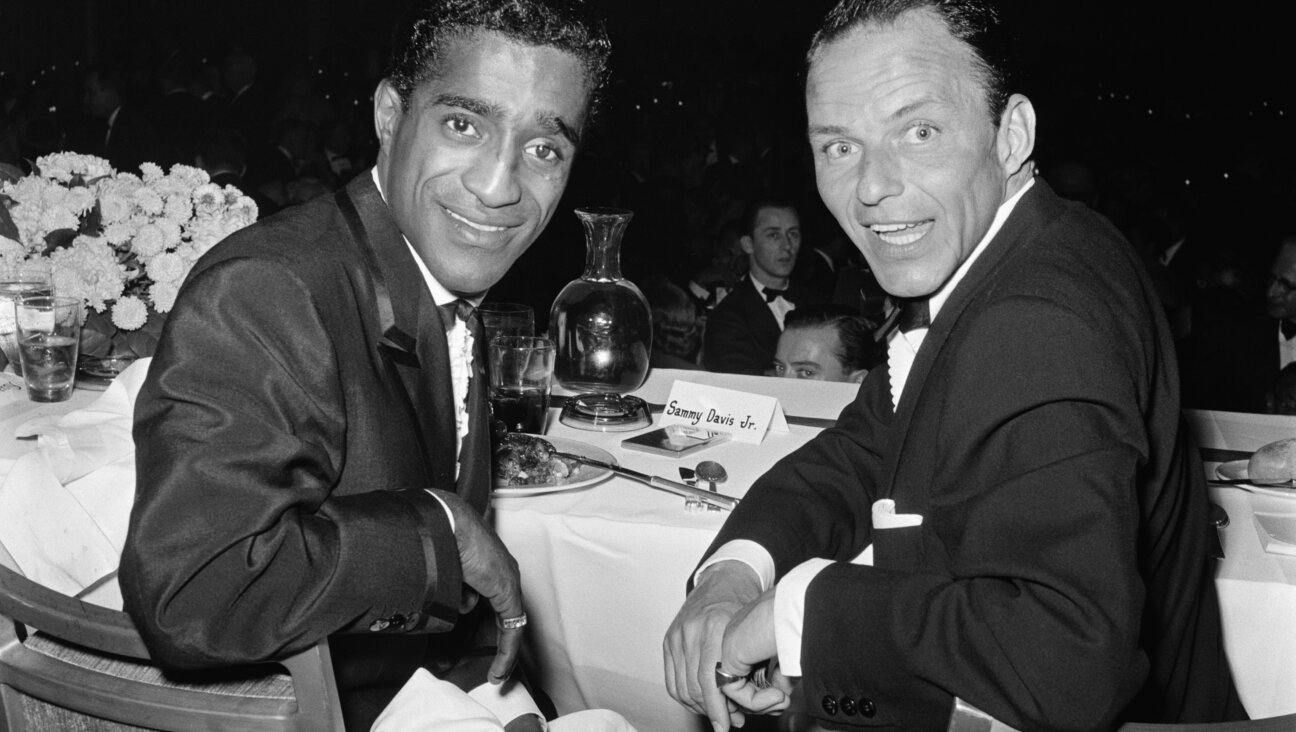Donald Trump Hates Jews. He Hates Women Too. What If You’re Both?

Jewish women reject Trump. Image by Getty Images
Two discussions exist in parallel, not in conversation, and have pretty much made up my social-media feeds of the last few months, but the last few days especially: Trump hates Jews. Trump hates women. Look what Trump said about Jews! Look what Trump said about women!
Lost in the mix is the fact—self-evident, presumably, to a Sisterhood audience—that some of us are Jews and women, at the very same time.
Ostensibly, this topic ought to fall within an intersectionality framework. Intersectionality—a term whose inventor, Kimberlé Crenshaw, explains better than I can—is a way of understanding that where a person falls on a whole host of axes or identity markers impacts their life experience. That would seem to be the only possible starting point.
White Jewish women tend to fall outside the intersectionality framework. Which is, in many ways, fair. We unmistakably benefit from whiteness in a society rife with systemic racism against visible minorities generally and African-Americans in particular. We aren’t racially profiled by police. We have decent representation among the actresses society has decided are worth envying. We exist—if we wish to—in the general (white-dominated) culture, working in that culture, dating in that culture, and so on. We are, as white women, the exact women intersectionality is about not hearing quite so much from.
And yet. We’re also, as Jews, subject to racism, which makes our experience of whiteness less carefree than the term suggests.
As a Jew who long understood myself to be white-except-to-neo-Nazis, I’m a bit confused where I fall, now that neo-Nazis (rebranded “alt-right”) have become a major force in U.S. politics. Ben Wofford’s thought-provoking Politico story about Jewish millennials really gets at the “whiteness and privilege” ambiguity, particularly when it comes to left-leaning white Jewish college students. Wofford discusses the new anti-Semitism in gender-neutral terms, which is understandable (no one piece can cover everything!), but which means there’s lots left to address on the topic.
For white Jewish women, whiteness or lack thereof has a whole beauty component. We’re both not white according to the alt-right neo-Nazis who form much of Trump’s fan base, and yet white enough to get lewdly commented on by a candidate with let’s say less than progressive tastes in women. (And this is setting aside any ogling of his own Jewish daughter.)
White Jewish women hover in a kind of no-man’s-land of oppressor vs. oppressed: It’s awkward for us to speak out about not living up to white beauty ideals, because saying this is suggesting that (horrors!) we believe there’s such a thing as ‘looking Jewish’ and hey, Ivanka Trump is Jewish, are we casting doubt on the Jewishness of small-nosed blondes, hmm? Or! Are we conflating our hair concerns with more historically significant (in the US at least) ones of black women? (See Marjorie Ingall’s Tablet essay on this topic.) How about noses—are we white women whose nose-neuroses are zilch in comparison with those of women of color? Or, in this one area, do we cease to be white-privileged? Here I’m thinking of Scaachi Koul’s fascinating Buzzfeed piece, which is both deeply sensitive to the place of The Nose in the history of anti-Semitism and dismissive of white women’s nasal neuroses. As a white woman and a Jewish woman, how should I feel about my nose?
(I can’t say, at this point in my life, I give my nose much thought, but you get the idea.)
Point being, along with the discrimination we experience just as Jews (with the accompanying denials; are you sure it isn’t just anti-Zionism? and did you consider that Trump’s populism is about helping middle-class white Christian men, who are the real victims?), we have the Jewish woman stuff to contend with, stuff that falls through the cracks of today’s progressive understandings, but that isn’t exactly addressed on the right.
To be clear, it’s not that it’s harder to be a white Jewish woman in 2016 America than to be a member of any other demographic group. All things equal, not so much! Rather, it’s that there’s something specifically challenging about having an ambiguous place in these super-fraught hierarchies.
It’s unfortunate that gender gets left out of the discussion, and not just because I, a Jewish woman, wouldn’t mind a bit of inclusivity on that front. Anti-Semitism is functioning in this election not just as a socialism of fools, but as a stand-in for misogyny.
Consider the strange phenomenon of Trump using anti-Semitic (and dogwhistle) attacks against Hillary Clinton. As Austin Ratner points out, Clinton is a non-Jewish woman, but—confusingly—a victim of anti-Semitism. Ratner writes, “The reason that Clinton particularly goads the Judas hunter is that she’s not only a powerful liberal but also a powerful liberal woman, which makes her the ultimate interloper in the eyes of the holy paranoiacs.”
There’s far more to say (and that’s been said) about the interwoven relationship between sexism and anti-Semitism, in this election and in general. For now, let’s leave it at this: Trump’s America probably wouldn’t be the greatest place for Jewish women.
Phoebe Maltz Bovy edits the Sisterhood. Her book, , will be published by St. Martin’s Press in March 2017.
A message from our Publisher & CEO Rachel Fishman Feddersen

I hope you appreciated this article. Before you go, I’d like to ask you to please support the Forward’s award-winning, nonprofit journalism during this critical time.
We’ve set a goal to raise $260,000 by December 31. That’s an ambitious goal, but one that will give us the resources we need to invest in the high quality news, opinion, analysis and cultural coverage that isn’t available anywhere else.
If you feel inspired to make an impact, now is the time to give something back. Join us as a member at your most generous level.
— Rachel Fishman Feddersen, Publisher and CEO























